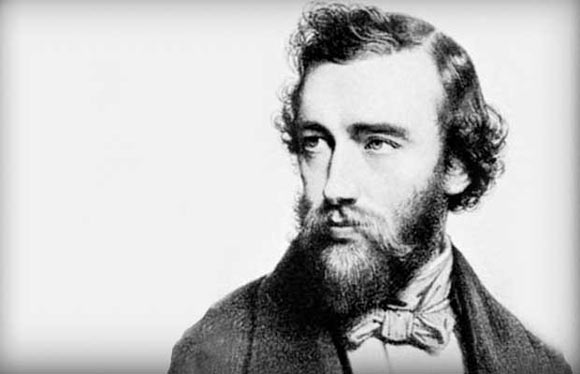Adolphe Sax invented “Saxophone”
Adolphe Sax was a 19th century instrument maker who invented the saxophone. He was born on November 6, 1814 in Dinant which was then a part of France and later became an independent country, that is Belgium. Sax was the oldest of 11 children and had a very accident prone childhood. He once fell from a third storey window and was assumed dead. Other incidents involved him swallowing a pin, being burned in a gunpowder explosion, felling onto a hot cast iron frying pan, being poisoned by varnish fumes, being hit on the head with a cobblestone, and nearly drowning in a river. His neighbors called him “little Sax, the ghost”. His father, Charles Joseph Sax, was an instrument designer and Sax took after his father from an early age. At the age of was 15, he submitted two originally designed flutes and a clarinet into a competition and it was these two instruments that he later studied at the Royal Conservatory of Brussels.
Sax worked as his father’s apprentice; he experimented with new designs while his father made more conventional instruments to fulfill demand and support the family. At the age of 20, he designed a 24-key clarinet, a unique and beautiful instrument which had never been made before. This caught the attention and admiration of Francois Antoine Habeneck, the conductor of the Paris Opera Orchestra, which was stationed in Brussels at the time. Sax was chasing a big dream of international fame and recognition and he soon left Brussels and moved to Paris, which was considered the centre of the arts in Europe.
He arrived in France with only 30 francs to his name, and had to borrow money to get by. Before he could afford to get his own place to live, he even lived in a shed temporarily. Fortunately, he was introduced to Hector Berlioz, an acclaimed composer and music critic. Sax showed him a unique instrument that he had designed – the baritone saxophone. When Berloiz saw the instrument, he told Sax that he would give him his opinion the following day. The next day, Sax read Berloiz’s comments in the “Journal des Débats”, a prominent arts publication in circulation back then. Berloiz had enthusiastically praised Sax in his review and Sax had received critical acclaim from other composers as well. Soon, he began to manufacture his instrument in different sizes and many composers began writing parts in their symphonies for the saxophone.
His success however, was tempered with professional rivalries which often lost him business. Some instrumentalists, who were loyal to rival instrument makers, refused to play his bass clarinet despite the fact that composers wrote parts in their symphonies specifically for it. Another incident occurred at the Paris Industrial Exhibition in 1844, where a German named Wieprecht accused him of stealing the idea from Germans. Adolphe Sax had to defend himself in a public showdown held in the German city of Koblenz. This event was attended by famous musicians and composers, such as the composer Franz Liszt. They were testing the claim that Wieprecht and others were already familiar with the saxophone and bass clarinet because these instruments had been invented by Germans earlier. However, when asked to play the same, they could hardly do so which showed that Sax had been right all along and his name was cleared.
Sax was awarded a patent in 1846 and won the gold medal at the Paris Industrial Exposition in 1849. Despite this, he was involved in several lawsuits and had to file for bankruptcy thrice and was only saved the fourth time by one of his admirers, Emperor Napoleon III. In 1858, he was diagnosed with lip cancer but fortunately was cured by a herbalist. He never married, but had 5 children by a Spanish mistress. One of his sons took over his business after his death in 1894. During his lifetime, Adolphe Sax was disappointed to see that his invention had not caught on in classical music, rather it was mostly used in military bands. However, his dream was realized after his death and the saxophone has now become an essential part of classical music, particularly in the U.S.
